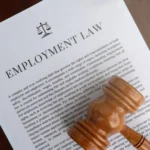If you’re a business owner looking to scale your company, the choice between becoming a franchisor or building your own chain is very important. Ownership structure, operational control, brand management, and legal responsibilities will heavily influence your business’s growth, profitability, and risk profile.
According to the International Franchise Association, franchises are projected to generate $936.4 billion in economic output this year, reflecting significant interest from business owners choosing the franchising path. However, whether franchising or building a company-owned chain suits your business better depends on your long-term goals, resources, and the level of control you want to maintain.
At Portalatin Business Law Firm, we guide business owners through the decision-making process, helping you establish the legal and operational structures necessary for stable, scalable growth.
Key Takeaways
- Franchises offer support but limit control.
- Chains give full control but require more work.
- Key differences include ownership, cost, and legal setup.
- It’s vital to pick the model that fits your goals and risk level.
What Is a Franchise?
A franchise is a business model where an individual (the franchisee) runs a location using someone else’s brand, systems, and name (the franchisor’s). It’s a relationship that allows proven businesses to expand their brand with the assistance of others.
Here’s how it works:
- The franchisor creates a successful business and develops a system that others can replicate.
- The franchisee signs a contract agreeing to use the franchisor’s brand, business model, and operational standards. There is also a fee.
- The franchisee pays ongoing royalties, a cut of the revenue, to the franchisor.
- In return, the franchisor gets to expand their business.
Franchising helps the franchisor grow their brand and reach new markets without managing every location directly. For the franchisee, it offers a faster, safer way to own a business, but with less creative control.
Franchising is ideal for business owners who:
- Want rapid brand expansion with limited capital investment.
- Are comfortable relying on external operators to manage individual locations.
- Can offer comprehensive training and ongoing support systems to ensure consistency.
Franchising may not be suitable if you:
- Want complete, direct oversight of all business operations.
- Lack a fully documented, easily replicable system.
- Aren’t prepared for ongoing legal compliance and franchisee management.
What Is a Chain Business?
A chain business is a company that owns and runs multiple locations under the same brand. All stores are controlled by the same owner, there’s no franchisee.You’re in charge of everything including the brand, the systems, the employees, and the growth.
Instead of selling locations to others, you expand by opening new ones yourself. That means:
- Full ownership of every location
- Centralized decision-making (you set the rules)
- Higher startup and operating costs
Chain model is a good fit if you:
- Want to own all the locations of your business
- Care about full control
- Have the capital (or access to funding) to scale slowly
- Prefer building your own systems from the ground up
Not ideal if you:
- Want help launching or managing a location
- Need a playbook to follow
- Don’t want to manage multiple teams directly
What is The Difference Between a Franchise and a Chain?

The biggest difference is ownership and control. In a franchise, each location is run by a different owner under a shared brand. In a chain, it’s all owned and operated by one company.
If you want speed and structure, franchising is usually the faster route. If you want freedom and long-term control, running a chain gives you that, but you’ll need the time, money, and systems to scale it yourself.
Here’s a side-by-side comparison that breaks it down clearly:
| Feature | Franchise (as Franchisor) | Chain Owner (Company-Owned) |
| Ownership | You own the different locations | You own every location directly |
| Operational Control | Indirect (enforced by agreements) | Direct and centralized |
| Growth Capital | Franchisees fund new locations | You fund expansion internally |
| Revenue Streams | Franchise fees & ongoing royalties | Direct store revenue |
| Speed of Expansion | Faster—leverages external capital | Slower—dependent on internal funding |
| Legal Structure | Franchise agreements & FDD | Traditional LLC or corporation setup |
| Risk and Liability | Shared with franchisees | Fully held by the owner |
Pros and Cons of Franchises vs. Chains
Both business models come with trade-offs. What works best depends on your goals, risk tolerance, and how hands-on you want to be.
Here’s a quick breakdown of the pros and cons:
Franchise Pros
- Rapid scaling without high capital investment.
- Recurring revenue streams from franchise fees and royalties.
- Reduced day-to-day operational involvement.
Franchise Cons
- Limited direct control over franchise locations.
- Legal complications, including compliance with franchise disclosure laws.
- Risk of inconsistent brand experience without stringent oversight.
Chain Pros
- Total control over all aspects of the brand and operations.
- 100% equity ownership and long-term value accumulation.
- Full flexibility to adapt quickly and innovate operationally.
Chain Cons
- ignificant capital requirements and higher financial risk.
- Slower expansion rate due to resource constraints.
- Greater operational complexity and direct liability.
Legal and Structural Considerations for Franchisors and Chain Owners
Your chosen business model will dictate your legal responsibilities and how you structure your business:
Franchisor Legal Essentials
As a franchisor, you must prepare a comprehensive Franchise Disclosure Document (FDD) outlining:
- Franchise fees and royalty structures
- Franchisee obligations and territory rights
- Operational, training, and brand standards
- Renewal, termination, and legal compliance procedures
You’ll need robust intellectual property protection to safeguard your brand and systems.
Chain Owner Legal Essentials
If you choose the chain model, your business typically operates under an LLC or corporation structure. Key considerations include:
- Protecting your brand through trademarks.
- Ensuring legal compliance at each location (labor, safety, zoning).
- Maintaining clear internal agreements if you have investors or co-owners.
Protect Your Business Before You Build It
Choosing between becoming a franchisor or building your own chain depends on your goals, available resources, and tolerance for operational complexity.
At Portalatin Business Law Firm, we specialize in advising business owners on creating strong legal foundations and scalable systems tailored specifically to your chosen business model.
Ready to make a confident, informed decision about your business’s future? Visit our contact page today to schedule a consultation and position your business for sustainable, protected growth.


